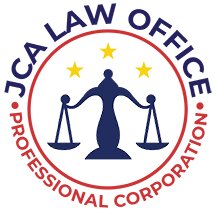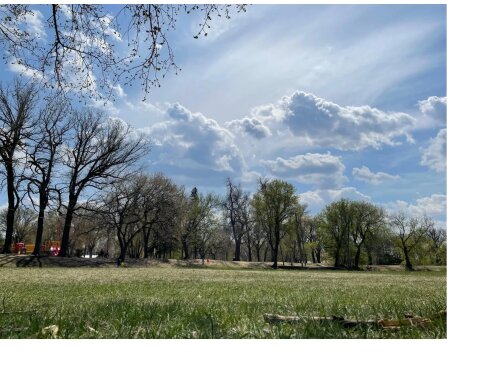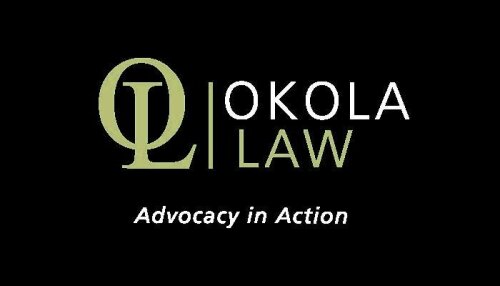Best Nursing Home Abuse Lawyers in Toronto
Share your needs with us, get contacted by law firms.
Free. Takes 2 min.
List of the best lawyers in Toronto, Canada
About Nursing Home Abuse Law in Toronto, Canada
Nursing home abuse law in Toronto, Canada, falls under the general jurisdiction of Canadian elder law and is a critical area of focus regarding the welfare of senior citizens. It broadly addresses instances of physical abuse, emotional abuse, neglect, or financial exploitation that elderly residents might experience in assisted living centers or nursing homes. The abuse can lead to significant health problems, severe emotional trauma, financial instability, and in the worst scenario, premature death. Regulations and protections in this area of law serve to uphold the safety, dignity, and rights of senior citizens.
Why You May Need a Lawyer
If you suspect that an elderly loved one has been the victim of abuse or neglect in a nursing home, you might need a lawyer to advise and support you through the legal process. An experienced lawyer can help to determine whether your suspicions constitute abuse, how to gather necessary evidence, and whether to file a complaint or lawsuit. A lawyer can also assist in negotiations with the nursing home or insurance companies, should they be applicable. This can often result in the awarding of compensation for injuries, losses or damages, helping to reduce the financial burdens that often accompany these situations.
Local Laws Overview
The key legalities concerning nursing home abuse in Toronto are governed by Canada's wider regulatory framework for long-term care homes. The Long-Term Care Homes Act, enacted by the Ontario government in 2007, details the rights and protections of residents in such facilities. Critical highlights from this act include the right to quality care, protection from abuse, and respect for the resident's dignity and autonomy. Care homes are legally obligated to protect these rights, and non-compliance can result in serious penalties, including hefty fines and imprisonment.
Frequently Asked Questions
1. What constitutes nursing home abuse?
Nursing home abuse can be physical, emotional, sexual, or financial. It can also take the form of neglect, in which the elderly person's basic needs for food, medication, cleanliness, and emotional connection are not adequately met.
2. What are some signs of nursing home abuse?
Signs can vary widely, but common indicators include unexplained injuries or health conditions, depression or anxiety, changes in behavior, sudden financial difficulties, or the elderly person appearing afraid or evasive of certain staff members.
3. Can nursing home abuse be reported anonymously?
Yes, instances of suspected nursing home abuse can typically be reported anonymously to the appropriate authorities. However, it can be harder to follow up on the case if you choose to remain anonymous.
4. What types of compensation can victims of nursing home abuse receive?
Possible compensations include medical expenses, psychological counselling, pain and suffering, relocation expenses, and in some cases, punitive damages.
5. Can a nursing home be sued for abuse or neglect?
Yes, nursing homes can be held liable for damages resulting from abuse, neglect, or negligent hiring of employees.
6. What if the abuser is another resident of the nursing home?
A nursing home can still potentially be held responsible, as they have a duty to protect all residents from harm, including harm inflicted by other residents.
7. How can a lawyer help in nursing home abuse cases?
A lawyer can provide guidance regarding the legal process, help gather evidence, represent you in talks with the nursing home or insurance companies, and present your case in court if a lawsuit becomes necessary.
8. Is there a time limit to file a nursing home abuse lawsuit?
In Toronto, the standard limitation period is two years. However, there are exceptions in certain cases, and a legal professional can provide further clarification.
9. Are nursing home residents protected by law from retaliation if they report abuse?
Yes, the Long-Term Care Homes Act provides protection against retaliation. If a resident suffers any form of retaliation for filing a complaint, further legal action can be pursued against the nursing home.
10. What should I do if I suspect nursing home abuse?
Firstly, document your concerns and any visible signs of abuse. Consult a legal professional, and they will guide you through the next steps, which could include reporting the abuse to authorities or filing a legal claim.
Additional Resources
The Ontario Ministry of Health and Long-Term Care is a valuable resource for those seeking information about nursing homes and residents' rights. Advocacy Centre for the Elderly (ACE) also provides free legal services for low-income seniors. Seniors Safety Line offers help in over 150 languages, providing information, referrals, and support to victims of elder abuse. Elder Abuse Prevention Ontario (EAPO) is another organization that works towards raising awareness and prevention of elder abuse.
Next Steps
If you suspect nursing home abuse, it's essential to act promptly. Start by documenting any signs of abuse or neglect. You might find it helpful to consult with a lawyer who specializes in elder law or nursing home abuse. They can guide you through the next steps, which may involve officially reporting the abuse, negotiating with the nursing home or its insurance provider, or filing a lawsuit to seek compensation for damages.
Lawzana helps you find the best lawyers and law firms in Toronto through a curated and pre-screened list of qualified legal professionals. Our platform offers rankings and detailed profiles of attorneys and law firms, allowing you to compare based on practice areas, including Nursing Home Abuse, experience, and client feedback.
Each profile includes a description of the firm's areas of practice, client reviews, team members and partners, year of establishment, spoken languages, office locations, contact information, social media presence, and any published articles or resources. Most firms on our platform speak English and are experienced in both local and international legal matters.
Get a quote from top-rated law firms in Toronto, Canada — quickly, securely, and without unnecessary hassle.
Disclaimer:
The information provided on this page is for general informational purposes only and does not constitute legal advice. While we strive to ensure the accuracy and relevance of the content, legal information may change over time, and interpretations of the law can vary. You should always consult with a qualified legal professional for advice specific to your situation.
We disclaim all liability for actions taken or not taken based on the content of this page. If you believe any information is incorrect or outdated, please contact us, and we will review and update it where appropriate.














